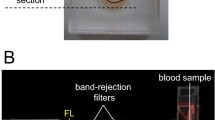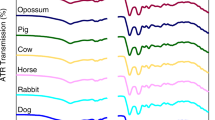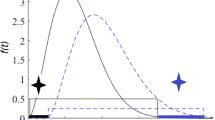Abstract
IN medico-legal practice, blood stains are usually identified by the benzidine and Kastle-Mayer tests, followed by confirmatory specific tests for hæmoglobin as hæmatin or hæmochromogen. The former suffer from the disadvantage that a number of oxidizing agents and plant juices also give positive reactions, while the latter are difficult when the stain is either small, old or badly contaminated. There is therefore a need for a rapid and reliable procedure suitable for blood stains, fresh or old, whether on cloth or admixed with dust. The method described below largely fulfils this need.
This is a preview of subscription content, access via your institution
Access options
Subscribe to this journal
Receive 51 print issues and online access
$199.00 per year
only $3.90 per issue
Buy this article
- Purchase on Springer Link
- Instant access to full article PDF
Prices may be subject to local taxes which are calculated during checkout
Similar content being viewed by others
References
Zeyneck, R., Hoppe-Seyler Z., 33, 426 (1901). Vles, F., Bull. Soc. Chim. Biol., Paris, 2, 223 (1920). See also Heilmayer, L., “Spectrophotometry in Medicine” (Adam Hilger, London, 1943), and Smith, A., “Forensic Medicine” (Churchill, London, 1943).
Author information
Authors and Affiliations
Rights and permissions
About this article
Cite this article
KHALIFA, A., SALAH, M. A Spectrophotometric Method for the Detection of Blood Stains. Nature 169, 461–462 (1952). https://doi.org/10.1038/169461a0
Issue Date:
DOI: https://doi.org/10.1038/169461a0
Comments
By submitting a comment you agree to abide by our Terms and Community Guidelines. If you find something abusive or that does not comply with our terms or guidelines please flag it as inappropriate.



